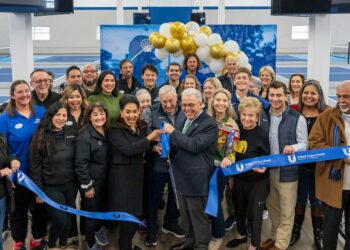Here is a very disturbing fact: one-third of Americans get 47 percent of their calories from junk food and the average American is eating 300 more calories each day than he or she did in 1985. This is one of the reasons why 67 percent of Americans are overweight or obese.
Being overweight or obese today is not a moral issue. It’s a biological and lifestyle issue. Excess weight is a risk factor for health problems such as diabetes, high blood pressure, high cholesterol and triglycerides, arthritis and even some cancers. Many people can improve or eliminate these “lifestyle diseases” by losing weight and exercising, but find both tasks challenging and even impossible.
The issue of weight control is a highly personal and powerful emotional one. We must eat to live, so our eating patterns are established when we are very young and become an integral part of who we are. If our eating habits don’t foster good health, then to change them, we may need to alter our life, our relationships and even our identity.
Think of how people describe themselves: “I’m a vegetarian” or “I’m a meat and potatoes kinda guy” or “I’m such a picky eater”. Each of these descriptions tells more about that person than simply what kind of foods they eat. How and what we eat can reveal our personalities and our self-images.
So how do we, as fitness professionals, begin to help our clients make the right changes for optimum health? What if they come to us because their doctor insisted that if they don’t make immediate changes, their health would be in serious jeopardy?
This is the perfect opportunity for clubs to create some continuity of care between the medical and fitness communities. We have clients/members in our clubs, needing our guidance. Should we be sending them to look for outside assistance?
We can direct some people to read self-help books, help them research online sites or send them to weight control programs. Those ideas may be sufficient, depending on how much or how little motivation the individual needs. But it isn’t a smart business practice for us to suggest that members go elsewhere for the help that we can provide with the right resources.
Clubs can integrate nutrition education into their services and craft a credible link to the medical community. Our trainers and nutritionists create accountability every day for many people. Accountability can be the single most important factor in determining the success of a doctor’s recommendations, and thereby, a patient’s club becomes an extension of their health care.
Has your club been unable to integrate nutrition resources into their menu of services? Why didn’t that work for you? How could it be done differently?
Judith Samuels, M.A. is a certified nutrition and wellness consultant and master personal trainer at Sport&Health Clubs in the Washington D.C. Metro Area. She can be reached via e-mail at judi@judisamuels.com.









Our YMCA offers RD led Healthy Cooking classes, free consultations with a RD, and healthy recipes of the week for all our members!